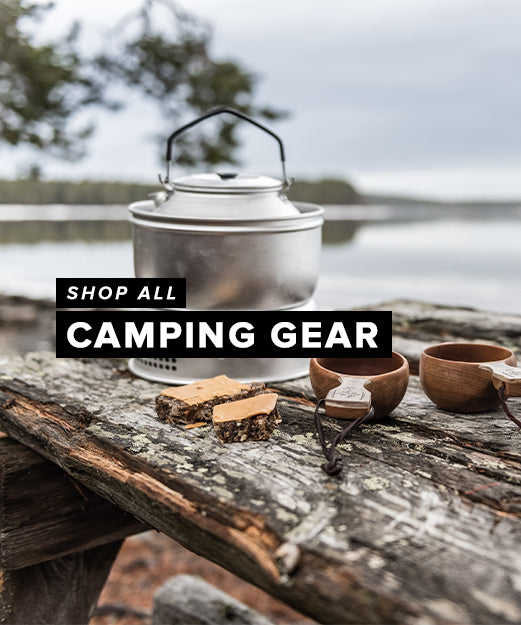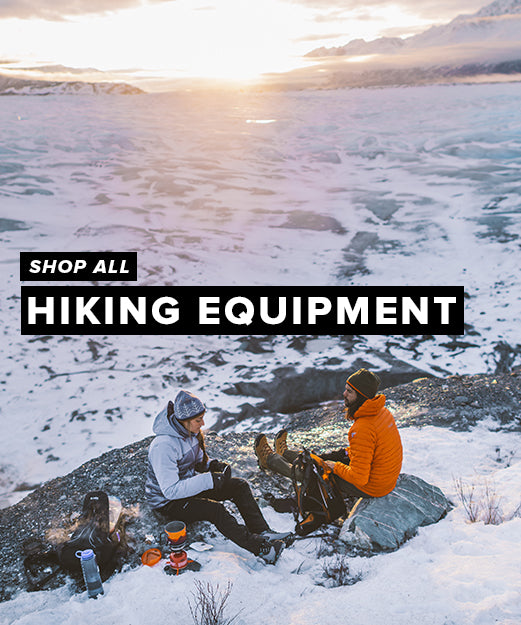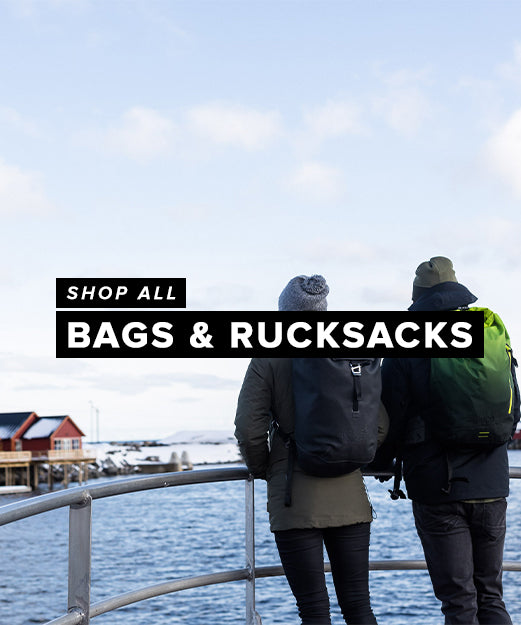Camping in the British Isles has always been fun and healthy, but now it is heavily promoted as cheap and affordable too – and with a four-person tent package plus four sleeping bags and roll mats thrown in selling at around £80, no-one can really argue otherwise. So it seems that family accommodation for trouble-free nights under the stars now comes cheaper than a waterproof jacket or a decent pair of hiking boots!
For novice campers, as also for those with a little experience looking to upgrade, the ready availability of low-price tents with a host of features drives down costs and leaves some cash to spare for other outdoor essentials such as portable cooking stoves and more. Though the advent of cheap tents makes the great outdoors even more accessible – which is something to celebrate – it is important to regard them as 'fair-weather friends'. Any misjudgement of their limitations could prove costly and highly inconvenient and when you thought your cheap all in one camping package would take away the stresses of making sure you had all the right equipment, it will leave you with all the stresses of someone ill-prepared against the realities of camping out.
Choosing a tent 'fit for purpose' is your route to cost-effective camping, and determining your own set of must-have features is essentially a two-step process:
1) Choose a tent designed to meet your needs
Here, it's helpful to think of needs/requirements under three main headings:
- leisure tents
- camping tents
- hiking tents

Leisure tents
A 'leisure' tent would be used occasionally for festivals, beach use, back-garden camping, summer camping in predominantly fair weather, and similar. They can be inexpensive and easy to pitch, and the most important consideration is size. Manufacturers of leisure tents are quite optimistic about capacities, so assume a 'four-person' tent means four close friends with no luggage, uniform contours and soft elbows. If you plan to sleep four, you're likely to need at least a five-person tent to get a nights' sleep.
Leisure tents are not suitable for prolonged regular use and cannot be expected to withstand extended periods of poor weather beyond the odd shower and in this situation, are not very leisurely. You can expect to replace tents such as these, even if carefully looked after, after a few uses due to the materials these tend to be made from.
Camping tents
If your trips will be wholly, or primarily camping-inspired, or if your mobility is supported by via car- or cycle-camping, then you have some flexibility as regards the weight of your tent. At a push, this category is also relevant if you intend to hike just short distances to take in one or two new locations, with the primary emphasis still on camping rather than covering distances in quick time.
In such circumstances, you will be looking for a suitably roomy tent to comfortably accommodate your sleeping, living, cooking and leisure requirements for days on end, so you can enjoy the camping experience. A design which maximises the available standing height is particularly important. So too is a good standard of weatherproofing. Choose a good quality adaptable design which will also cope with stronger winds, condensation and insects.

Hiking tents
Where your trips are hiking-orientated, you will be seeking to cover distance, maximise the time you spend immersed in a natural environment, or both. Consequently, these self-sufficient backpacking trips will demand a high-specification lightweight tent and equipment, and assume more basic and functional accommodation.
To hike efficiently, your camping equipment must be efficient too. You won't hike far unless a) your tent allows you a good nights' sleep; and b) you don't have to worry if your tent will make it to the end of the trail. Therefore, you will need a light, durable, weatherproof tent you can rely on. In a nutshell, your tent must be as well-prepared as you are to see the challenge through.
2) Choose tent materials and specifications designed to meet your expectations
Here are some features likely to impact on the quality, and thus the performance, of your tent:
Hydrostatic head (HH)
In layman's terms, HH is a number value which states the leak-resistance of your tent material. An HH rating of 1,000 mm will resist light showers, whereas 2,000 mm should be enough to keep you dry in all UK conditions, though more extreme climates will demand more. Note these figures apply to tent material above your head – groundsheets are subject to extra pressures and may have higher HH ratings. Note too that, with a typical HH rating of 1,500 mm, many low-cost tents 'walk the line'.
Tent materials
Common tent materials are listed below in ascending order of durability and cost:
- PU (polyurethane coated) material
Used on low-cost tents. Durable when new, but protective coating gradually disintegrates in a process known as hydrolysis.
- SilNylon (silicone-coated nylon) material
Light, strong, stable and water-repellant, SilNylon is a costly premium material. Most manufacturers compromise with SilNylon on the exterior and PU coatings on the interior.
- Cuben fibre
An ultra-strong, ultra-light, translucent hi-tec material which is the most waterproof material available. Cuben fibres won't stretch (so guy-lines stay taut), and don't absorb water (so no heavy, wet tents).
Pegs/guy-lines
Pegs supplied with new tents are adequate, though sometimes insufficient for all-weather anchoring. Guy-lines, on the other hand, are rarely premium quality. Thankfully, unlike the majority of issues discussed here, augmenting and upgrading these important accessories is a straightforward, moderate-cost operation.

So taking some of these points in to consideration should give you a basic understanding of why investing in a good quality tent is a good idea. It may seem cheaper to buy a tent from a supermarket, especially if you do not camp regularly, but investing in a good quality tent will mean that it will last you for years and years - if looked after. It will not find itself discarded during or after the trip because it couldn't withstand our green and pleasant land's ever changing, slightly unstable and more blustery weather tendencies. Which like the old saying goes, will leave you 'buying cheap, buying twice...' and perhaps you'll wish you made the investment earlier on in your camping adventures.

 So taking some of these points in to consideration should give you a basic understanding of why investing in a good quality tent is a good idea. It may seem cheaper to buy a tent from a supermarket, especially if you do not camp regularly, but investing in a good quality tent will mean that it will last you for years and years - if looked after. It will not find itself discarded during or after the trip because it couldn't withstand our green and pleasant land's ever changing, slightly unstable and more blustery weather tendencies. Which like the old saying goes, will leave you 'buying cheap, buying twice...' and perhaps you'll wish you made the investment earlier on in your camping adventures.
So taking some of these points in to consideration should give you a basic understanding of why investing in a good quality tent is a good idea. It may seem cheaper to buy a tent from a supermarket, especially if you do not camp regularly, but investing in a good quality tent will mean that it will last you for years and years - if looked after. It will not find itself discarded during or after the trip because it couldn't withstand our green and pleasant land's ever changing, slightly unstable and more blustery weather tendencies. Which like the old saying goes, will leave you 'buying cheap, buying twice...' and perhaps you'll wish you made the investment earlier on in your camping adventures.
 NEW!! Free UK Delivery
NEW!! Free UK Delivery Hassle-Free Returns
Hassle-Free Returns Clearpay
Clearpay










